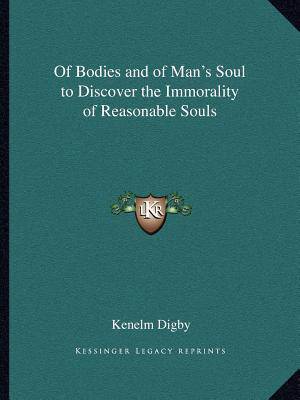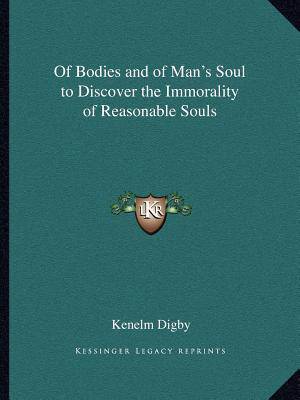
- Retrait gratuit dans votre magasin Club
- 7.000.000 titres dans notre catalogue
- Payer en toute sécurité
- Toujours un magasin près de chez vous
- Retrait gratuit dans votre magasin Club
- 7.000.000 titres dans notre catalogue
- Payer en toute sécurité
- Toujours un magasin près de chez vous
Of Bodies and of Man's Soul to Discover the Immorality of Reasonable Souls
Kenelm Digby
Livre broché | Anglais
56,95 €
+ 113 points
Format
Description
""Of Bodies and of Man's Soul to Discover the Immorality of Reasonable Souls"" is a philosophical treatise written by Kenelm Digby. The book explores the relationship between the physical body and the human soul, with a particular focus on the concept of immortality. Digby argues that the human soul is immortal and that it exists independently of the physical body. He also discusses the role of reason in understanding the nature of the soul and its relationship to the body. The book is written in a dense and complex style, and is considered a significant work in the history of philosophy. It is recommended for readers with a strong background in philosophy and a deep interest in the nature of the human soul.1669. This book also contains two discourses of the powder of sympathy and of the vegetation of plants. The main body of this work is two treatises, one concerning bodies, the other concerning man's soul. Sir Digby aims no further than to show what may be effected by corporeal agents. There, possibility serves his turn as well as the determinate indivisible point of truth. He is obliged to that, in regard of which, the numerous crooked narrow crannies, and the restrained flexuous rivulets of corporeal things, are all contemptible, further than the knowledge of them serves to the knowledge of the soul. Written in Old English.This scarce antiquarian book is a facsimile reprint of the old original and may contain some imperfections such as library marks and notations. Because we believe this work is culturally important, we have made it available as part of our commitment for protecting, preserving, and promoting the world's literature in affordable, high quality, modern editions, that are true to their original work.
Spécifications
Parties prenantes
- Auteur(s) :
- Editeur:
Contenu
- Nombre de pages :
- 504
- Langue:
- Anglais
Caractéristiques
- EAN:
- 9781162614533
- Date de parution :
- 10-09-10
- Format:
- Livre broché
- Format numérique:
- Trade paperback (VS)
- Dimensions :
- 210 mm x 279 mm
- Poids :
- 1120 g







